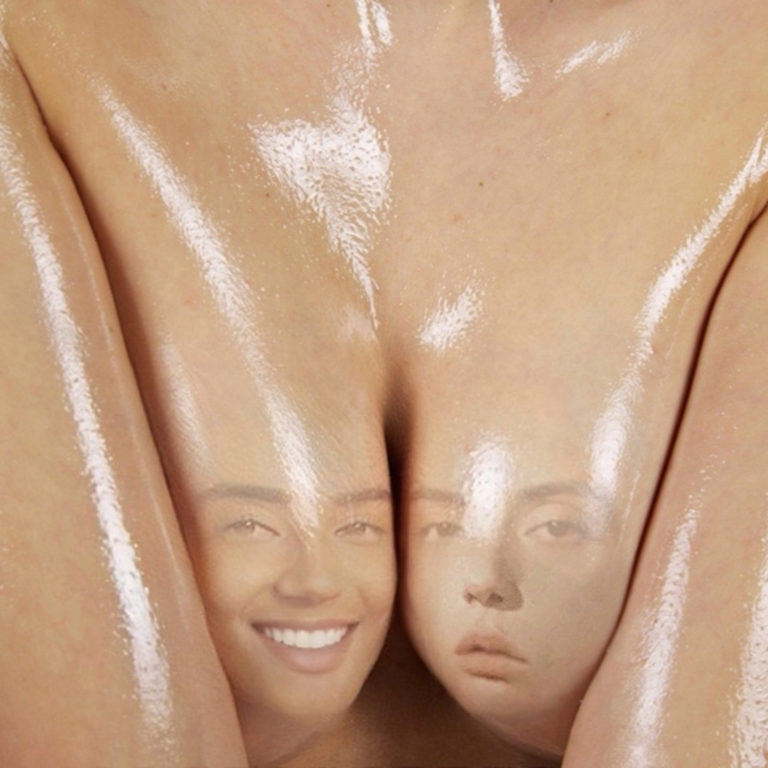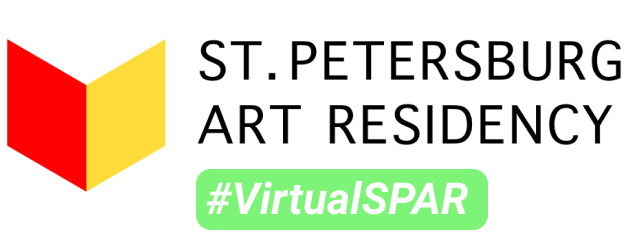Distancing ourselves from ourselves – some first thoughts – by Maria Guta
When Anastasia was introducing us to the theme of the residency, she mentioned something that stuck with me: the ability to distance ourselves from ourselves.
I think it’s an interesting question to raise in the current era of self-awareness, self-care, self love, self-empowerment, self-optimising, self-branding, self-promotion, self-marketing, self-image, economy of self (-image), self-obsession, or the age of narcissistic entitlement altogether. We’re part of a self-obsessed culture and a society focused on material belongings, looks, celebrity worship, and attention seeking, where the production of the public self and its corresponding personas have become the norm over the last two decades – “we are constantly labouring on the presentation of ourselves for the public consumption.” (P. David Marshall). The online culture has led to an increased emphasis on the production of personas, and then social media came and augmented this mediatization of the self. We not only build single online personas, but multiple ones, adapting to the different kinds of norms and conventions imposed by each one of the platforms we signed for. Managing multiple identities as we would manage multiple jobs and having a wide range of tools to do that. Building narratives and attractive stories, putting ourselves out there and selling our personal brand. Making sure that even if not everything is fully lived/experienced/tasted, it is at least well documented, posted, viewed and liked – validated.
I know this is an obvious and long debated topic, we heard and read about it on and on and it’s maybe already boring for some, but I feel it’s still too present to move over. Also, my position may sound critical, but I definitely include myself in the targeted categories.
Let’s take the art world for example – I sometimes feel like people would share stuff (like taking part in a show, receiving an award, being mentioned in an article/review, name dropping etc.) just because that has to stay there as a proof (“pics or it didn’t happen”), it’s all adding up to the public image of that artist, to its capital, while most of the followers won’t even really check the respective content other than superficially. But they would like and comment and maybe even share forward – you know the drill. We are more concerned about “being seen” and validated by a certain scene than of the genuine impact of what we say, do or create. Liking and sharing posts out of inertia or based on shallow motivation, assuming that these actions will somehow benefit our careers, and even our social status. And I feel like this deepened even more since the Corona pandemics. Our work is now mostly visible/accessible online, so are our “artist-statements”, and we must make sure we do our best to keep up the good work. There’s an ever-more-present pressure of existing and being active online, as to compensate for the lack of the physical presence. And this could be translated into any other field as well, I don’t think it only applies to arts and artists.
In this general context, I would like to take this online residency as an opportunity to reflect upon the meaning of distancing ourselves from ourselves as a much needed break from the constant pressure of self-staging and presenting ourselves to the public. Which is not only something I do too on a regular basis, but I also extend it and reenact it in my practice. And it’s also interesting to observe (and scary at the same time) that while I can easily turn into and confidently perform my online personas, I become more and more anxious when I have to summon my “real” self and put it in the spotlight. I get nervous, confused, I block, I’m not confident with my un-staged, genuine self. It sounds a bit melodramatic, it also feels this way :).
Throughout the next few weeks I will try to come up with a series of visual exercises and maybe some more writing based on this thread of thoughts – not really sure yet what the final outcome will be, but hey, guys, “it’s not the destination, it’s the journey”. And with a little bit of luck it’s gonna be therapeutic too (at least for me, since we’re all about the self).
Bye for now.

Van Luong (1)
 Kjell Zillen (4)
Kjell Zillen (4) Mels Dees (9)
Mels Dees (9) Gao Yu (4)
Gao Yu (4)Katya Lebedev (1)
Juan Dies (1)
 Anastasia Prahova (2)
Anastasia Prahova (2)Nena Nastasiya (7)
Taarn Scott (6)
 Cynthia Fusillo (20)
Cynthia Fusillo (20)Roberta Orlando (8)
 Nanda Raemansky (25)
Nanda Raemansky (25) Eliane Velozo (22)
Eliane Velozo (22)Leyya Mona Tawil (1)
Julia Dubovyk (2)
Jianglong (2)
 Iara Abreu (23)
Iara Abreu (23) Agathe Simon (1)
Agathe Simon (1)Rosetta Allan (1)
Elizaveta Ostapenko (5)
 Valentin Boiangiu (2)
Valentin Boiangiu (2) Wesley John Fourie (9)
Wesley John Fourie (9) Renato Roque (3)
Renato Roque (3)Rosa Gauditano (5)
Neerajj Mittra (34)
Ciana Fitzgerald (5)
Boris Moz (3)
 Katerina Muravuova (5)
Katerina Muravuova (5)Kyla Bernberg (1)
 Muyuan He (1)
Muyuan He (1)Liza Odinokikh (2)
 Amalia Gil-Merino (2)
Amalia Gil-Merino (2)Paulo Carvalho Ferreira (6)
 Anastasiia Komissarova (2)
Anastasiia Komissarova (2) Yumiko Ono (1)
Yumiko Ono (1) Stefania Smolkina (1)
Stefania Smolkina (1)Lena Adasheva (1)
 Zahar Al-Dabbagh (1)
Zahar Al-Dabbagh (1) Emily Orzech (6)
Emily Orzech (6) Fernanda Olivares (5)
Fernanda Olivares (5) Noor van der Brugge (3)
Noor van der Brugge (3) Ira Papadopoulou (2)
Ira Papadopoulou (2) Tom Chambers (8)
Tom Chambers (8) Titi Gutierrez (3)
Titi Gutierrez (3) Franz Wanner (2)
Franz Wanner (2) Crystal Marshall (6)
Crystal Marshall (6) Transpositions III (36)
Transpositions III (36) Riddhi Patel (3)
Riddhi Patel (3) Michele Kishita (2)
Michele Kishita (2)Damian Carlton (4)
 Deanna Sirlin (1)
Deanna Sirlin (1) Laura Salerno (3)
Laura Salerno (3) Nina Annabelle Märkl (12)
Nina Annabelle Märkl (12) Elina Fattakhova (1)
Elina Fattakhova (1) Tasha Hurley (1)
Tasha Hurley (1) Ian Hartley (2)
Ian Hartley (2) Laurence de Valmy (2)
Laurence de Valmy (2) Ilia Bouslakov (5)
Ilia Bouslakov (5) Andrea Ahuactzin Pintos (4)
Andrea Ahuactzin Pintos (4) Sveta Nosova (3)
Sveta Nosova (3)Carlos Carvalho (1)
 Maria Timofeeva (1)
Maria Timofeeva (1) Jinn Bug (2)
Jinn Bug (2) Johannes Gerard (3)
Johannes Gerard (3)Irène Mélix (1)
 Aba Lluch Dalena (3)
Aba Lluch Dalena (3) Fabian Reimann (1)
Fabian Reimann (1)Natalia Gourova (1)
 Kate Finkelstein (4)
Kate Finkelstein (4)Raina Greifer (1)
James McCann (2)
Naza del Rosal Ortiz (1)
 Jay Critchley Jay Critchley (1)
Jay Critchley Jay Critchley (1) Vicky Clarke (4)
Vicky Clarke (4) Maria Silva (4)
Maria Silva (4) Shir Cohen (5)
Shir Cohen (5) Peter Shenai (4)
Peter Shenai (4) Bo Choy (4)
Bo Choy (4)Alina Orlov (2)
 Olga Popova (3)
Olga Popova (3) Coco Spencer (2)
Coco Spencer (2) Filippo Fabbri (2)
Filippo Fabbri (2)Daniele Leonardo (5)
 SISTERS HOPE (1)
SISTERS HOPE (1) Scenocosme : Gregory Lasserre & Anais met den Ancxt (4)
Scenocosme : Gregory Lasserre & Anais met den Ancxt (4) Anne Fehres & Luke Conroy (6)
Anne Fehres & Luke Conroy (6) Olesya Ilenok (2)
Olesya Ilenok (2) Marie-Eve Levasseur (4)
Marie-Eve Levasseur (4) Natalia Tikhonova (2)
Natalia Tikhonova (2)Ildar Iakubov (1)
 Evgeniy Lukuta (7)
Evgeniy Lukuta (7) Jarkko Räsänen (5)
Jarkko Räsänen (5)Maria Guta (6)
Egle Kulbokaite Dorota Gaweda (6)
Thomas Kotik (1)
 Andrea Stanislav (3)
Andrea Stanislav (3)Ludmila Belova (1)
Alena Levina (1)
 Ilia Symphocat (2)
Ilia Symphocat (2)Yevgeniy Fiks (1)
Star Trauth (18)
Jyoti Arvey (1)
Les Joynes (2)
 Ekaterina Ivanova (1)
Ekaterina Ivanova (1) Lev Shusharichev (1)
Lev Shusharichev (1)Michael Stebackov (5)
Ryan Griffith (3)


1 Comment
Dear Maria,
Thank you for sharing your first thoughts.
I can relate to some many points you touched upon. I think a lot of people can.
When the thematic focus for the current season at the online residency was developed a year (!) ago, distancing was really mostly about physical distancing. Borders being closed, people being “locked up” in home offices and so on. Well, of course this lack of personal contact led to a feeling of separation on a human level. But we were mostly looking outwards, missing the others (and the presence of The Other as we knew it before), waving to our neighbors from a safe distance. It was only a question of time when this state of distance would reach our self. Basically, any life-turning event can be seen as a point of distancing, distancing from an old self and creating that person we can think of as “someone I used to be”.
And then comes the all-consuming online presence. And with it – the pressure (I think I’m not the only one perceiving it as a kind of pressure) to be present online and to make sure that your activities and achievements are well-represented (just as you wrote, this continuous construction of our online-self or better to say online-selves). Especially during the pandemic, when normally there are much less opportunities to spread the word other than posting something online.
One has to construct their own digital ecosystem, set up their own limits (from a mechanic screen-time limit to a thorough healthy communication strategy). But when these limits don’t match with what is expected, respecting and protecting them might turn into a challenge.
In this context someone who makes a decision to not be present online and/or not to work digitally can be seen as a true modern nonconformist.
Finally, going back to digital presence, I noticed that nowadays, when most of the professional events take place online, which makes them seemingly more accessible and easy to combine, you are kind of expected to be able and have the resource to attend and participate in all of them. And what makes it event worse is that some of us (I speak for myself here in particular) have this tiny voice inside that, each time you have deny an invitation to an online event, says – “Are you sure you really have to miss that? It’s not that it’s impossible physically…”